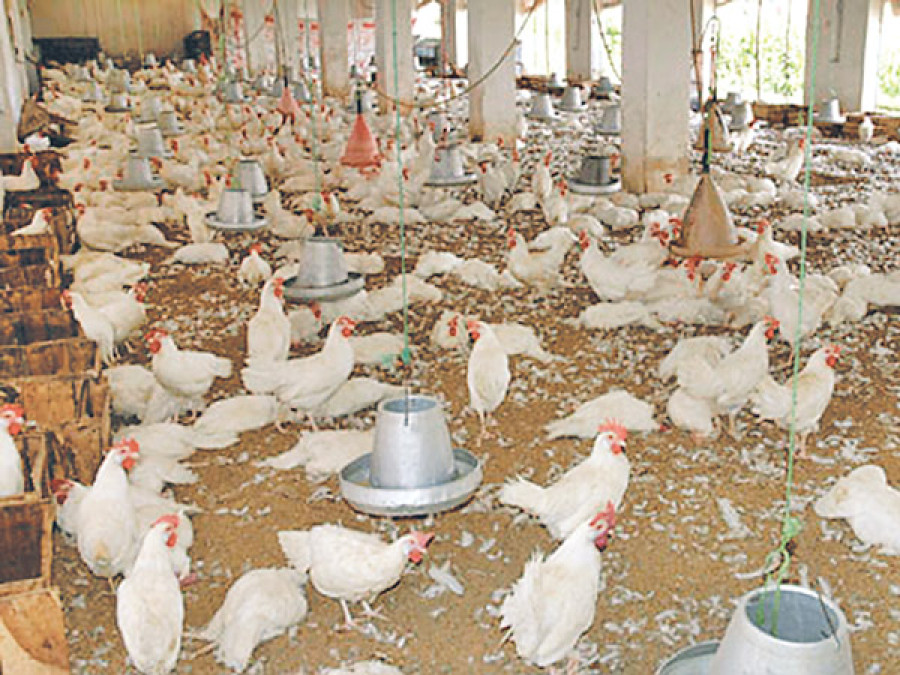Money
Feed, fuel shortages hit poultry industry hard
The poultry industry has been badly hit by the Indian trade embargo and unrest in the Tarai with supplies of chicken and chicken feed severely disrupted.
Suman Bashyal
The poultry industry has been badly hit by the Indian trade embargo and unrest in the Tarai with supplies of chicken and chicken feed severely disrupted.
Traders said that the market could see a shortage of chicken in the near future as production has dropped sharply over the last two months due to lack of feed and a halt in breeding due to a shortage of fuel.
Poultry farmers say they need cooking gas and diesel for breeding when there is load-shedding.
The lower production could push up prices.
As per a study of Nepal Rastra Bank, the production of meat will decrease by 2 percent this fiscal year if the current situation continues.
“Till now, supply and demand are in balance as consumption has dropped massively because many hotels and restaurants have closed,” said Jung Bahadur BC, president of the Nepal Chicken Sellers Association. “At the same time, households are consuming less meat items due to a cooking gas shortage.”
According to him, prices could go up after some days when the demand surges and the supply would have fallen. Chicken meat is being sold at Rs280 to Rs290 per kg in the retail market. BC said that sales of chicken meat and eggs had dropped 30-40 percent along with production.
Guna Chandra Bista, president of the Hatchery Industries Association of Nepal, said that the poultry industry was one of the heavily affected sectors this year. He estimated that the industry had sustained losses of Rs8-10 billion since the unrest in the Tarai and the Tarai blockade.
“Over the year, the poultry industry faced many obstacles. First, there was the earthquake, and now there is the blockade that has affected production and sales badly,” he said.
Around 1 million newly hatched chicks had been destroyed due to low sales and problems in supplies along with lack of chicken feed across the country, the Hatchery Industry Association said.
According to the association, a total of 135 hatcheries are operating informally in the country. There are 75 hatcheries in Chitwan, the largest poultry producing district in the country.
Many farmers have left the poultry sector while others have continued production by purchasing fuel on the black market. Bista said that farmers were compelled to buy diesel and animal feed by paying more. “Around 60 percent of the corn and 90 percent of the soybean oil cakes are imported from India,” said Bista.
According to the Trade and Export Promotion Centre, animal food is among the top five imports. Nepal imported Rs10.02 billion worth of feed during the review period, including Rs6.05 billion worth of oil cakes.
The association said that the domestic poultry feed production had dropped 30-40 percent due to lack of raw materials.




 20.12°C Kathmandu
20.12°C Kathmandu














